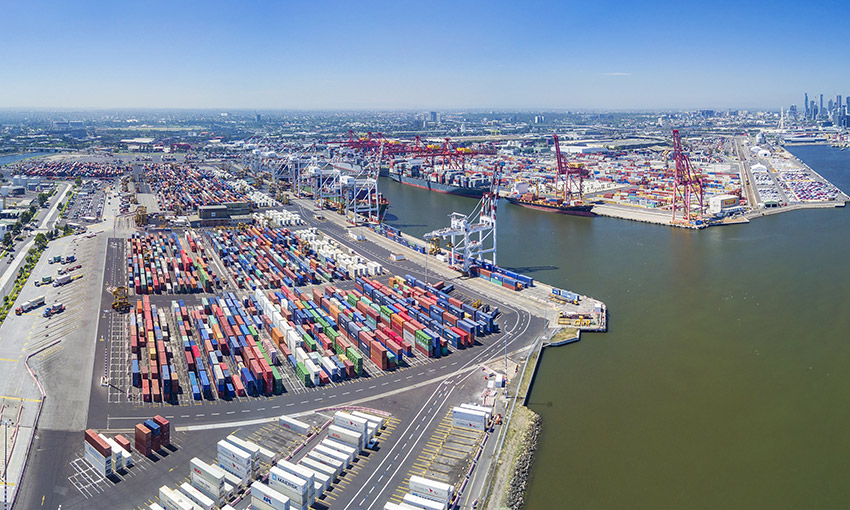AFTER achieving its highest throughput levels in seven months during June, the Port of Melbourne’s container throughput suffered a drop in the month of July due to full overseas imports and exports being down almost 18,000 TEU on June’s figures.
According to the latest available trade statistics from the port, total container throughput was 241,595 TEU in July 2020. This was a decrease of 6% on the June’s throughput (257,186 TEU), but was an increase of 2% on the same month last year with the port handling a total of 236,614 TEU in July 2019.
Taking a closer look at container trade last month, Melbourne’s full overseas imports came to 104,217 TEU, and full overseas exports were 56,482 TEU.
Total trade in empty containers in June was reported to be 54,271 TEU.
The Bass Strait trade totalled 20,729 TEU of full containers during July, 8762 TEU of which originated from the Apple Isle, and 11,967 TEU making its way south across the Strait.
Mainland coastal trade totalled 5896 TEU of full containers; 545 TEU were imports and 5351 TEU were exports.
Taking a look at the port’s top commodities, Port of Melbourne reports the top containerised commodity to cross the wharves was miscellaneous manufactures. This was followed by electrical equipment, furniture and timber.
Over the month, the port handled 18,089 motor vehicles (302,804 revenue tonnes). This was an increase of 2699 units on June but down 15,830 units on July 2019.
Trade volumes for the remainder of the port’s non containerised trade in revenue tonnes were:
- Break bulk – 85,335
- Liquid bulk – 469,947
- Dry bulk – 344,393
- Other – 239,746

